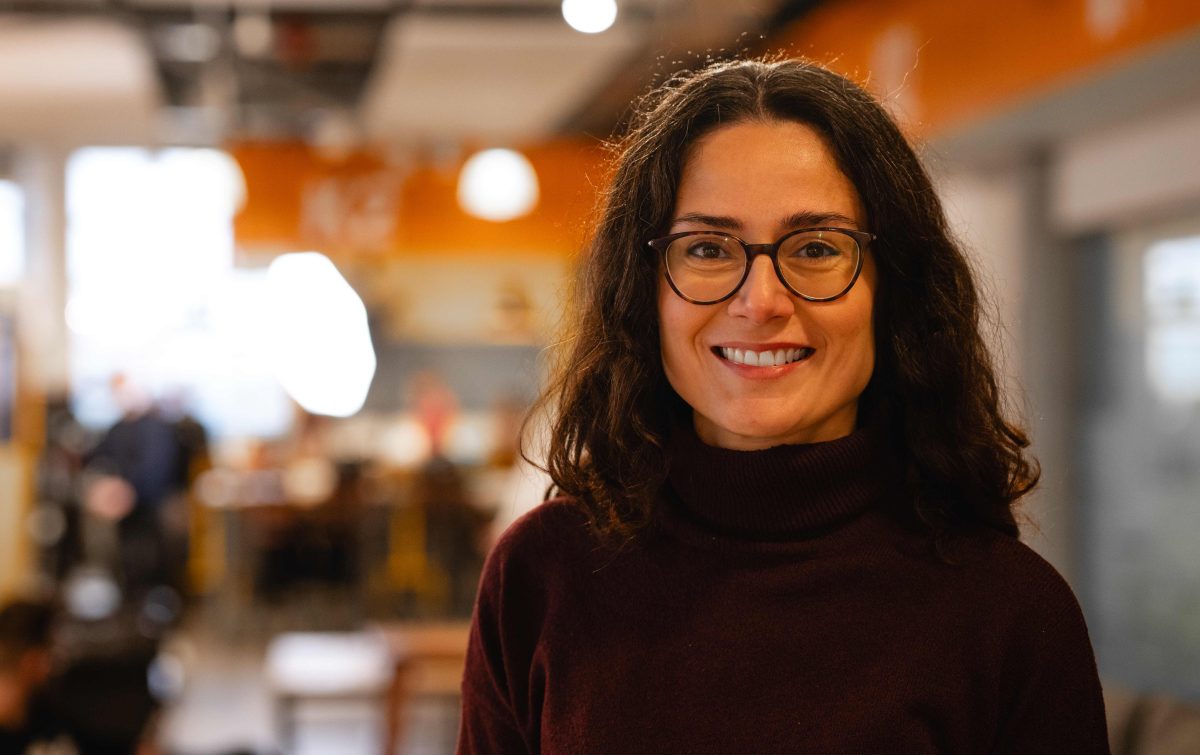Geane Fontinele, a Research Fellow on the Teaching Accessibility in the Digital Skill Set (TADSS) research project at the University of Southampton, reports on education-focused sessions from AbilityNet’s TechShare Pro conference.
Current industry perspectives on education and training
The recent TechShare Pro 2023 in London brought a strong sense of responsibility and enthusiasm towards building an inclusive society.
Organised by AbilityNet, it is one of the Europe’s largest annual event in assistive technology, accessibility, and innovation and gathers in-person and online many professionals across sectors such as banking, gaming, education, law, media, and technology to discuss current and future perspectives on accessibility. Featured sessions included the event hosts, HSBC alongside Google, Apple, Microsoft and other organisations highlighting their efforts and success stories in taking accessibility and inclusion as a central pivot of their businesses.
With frequent references to the importance of cultivating learning in the field, accessibility leads and advocates shared their experiences in raising accessibility awareness and knowledge.
Speakers reinforced the importance of internal training in accessibility as part of induction programmes and the need to establish accessibility basics across work flows, as well as the continuing need for more accessibility specialists. We heard how some accessibility leaders use storytelling as a way to influence organisational strategies in developing inclusive cultures.
Understanding what accessibility and requirements really mean
A major focus early in the event was on establishing the foundations of accessibility within organisations, across roles and teams. It was focused on specific competences and establishing the basics for a shared language of accessibility.
In a session about the European Accessibility Act, Malin Rygg, Head of the Norwegian Authority for Universal Design of ICT, expressed that ‘everybody should have a basic level of what this means’, that it ‘is not only a particular area for special experts and interested people’.
Her discussions centred on the basic level of accessibility that professionals need to know, the minimum knowledge and skills which are essential to provide accessible service and products and to comply with legal legislation.
Workplace Approaches to Teaching Digital Accessibility: Establishing a Common Foundation of Awareness and Understanding, shows the value that expert educators place on foundational pedagogic approaches to accessibility workplace teaching and learning.
In addition, Rygg stressed how law enforcement can lead to better practice. However, she noted how variability between laws can be a particular challenge for multinationals. Also, Rygg highlighted new moves within industry and public bodies to better understand the technical standards. Together, these aspects have become an important factor in raising awareness of the multiple facets of accessibility in the higher education.
Stephanie Cadleux, Chief Accessibility Officer in Canada, emphasised the need for building accessibility awareness and understanding into all work flows and how it can be incorporated into whatever professionals do. Cadleux discussed the important role governments can play to raise the awareness and societal expectations and promote educational institutions to embed accessibility into the curriculum.
Ted Drake, Global Accessibility and Inclusive Design Leader at Intuit, highlighted the effectiveness of TeachAccess in the USA in integrating accessibility curriculum into universities and creating links between higher education and industry, emphasising the potential for an equivalent project in Europe.
Behavioural science and experience labs for accessibility teaching
In the session, ‘Teaching Homer Simpson About Accessibility’ Elaine Gallagher, a behavioural scientist introduced ‘Homer’ and ‘Spock’ approaches in the discussion on how to design learning materials and how learners learn the content about accessibility and disability awareness. She emphasised the difficulty for designers to anticipate users’ learning experiences and the need to give practical examples of accessibility needs, for example, of what could be missed out as a way to provide insight into the importance to change the design.
Zoe Portlock, accessibility lead at Hargreaves Lansdown, discussed the cultural change of making accessibility a mandatory e-learning part of induction training, based on the business values and strategies, which has helped to embed digital accessibility knowledge.
Google Accessibility Discovery Centre and Sony Accessibility Empathy Lab focused on their training in accessibility and inclusive design, as well as the collaboration with different professionals and disability communities. Google Accessibility Discovery Centre expressed the interest of other companies to implement similar centres.
Overall, the main takeaway from a focus on accessibility teaching and learning across the presentations was the value experts placed on building organisational awareness and knowledge of inclusion, accessibility and legislation across all roles and sectors to better help professionals pursue the design and delivery of accessible products and services. We have found accessibility to be a shared endeavour, and TechShare Pro loudly invites joint action.
Further reading
Lewthwaite, S., Horton, S. & Coverdale, A. (2023) Workplace approaches to teaching digital accessibility: establishing a common foundation of awareness and understanding. Frontiers in Computer Science, 5. https://doi.org/10.3389/fcomp.2023.1155864
Coverdale, A., Lewthwaite, S. & Horton, S. 2022. Teaching accessibility as a shared endeavour: building capacity across academic and workplace contexts. In Proceedings of the 19th International Web for All Conference (W4A ’22). ACM, New York, NY, USA, Article 4, 15. https://doi.org/10.1145/3493612.3520451

